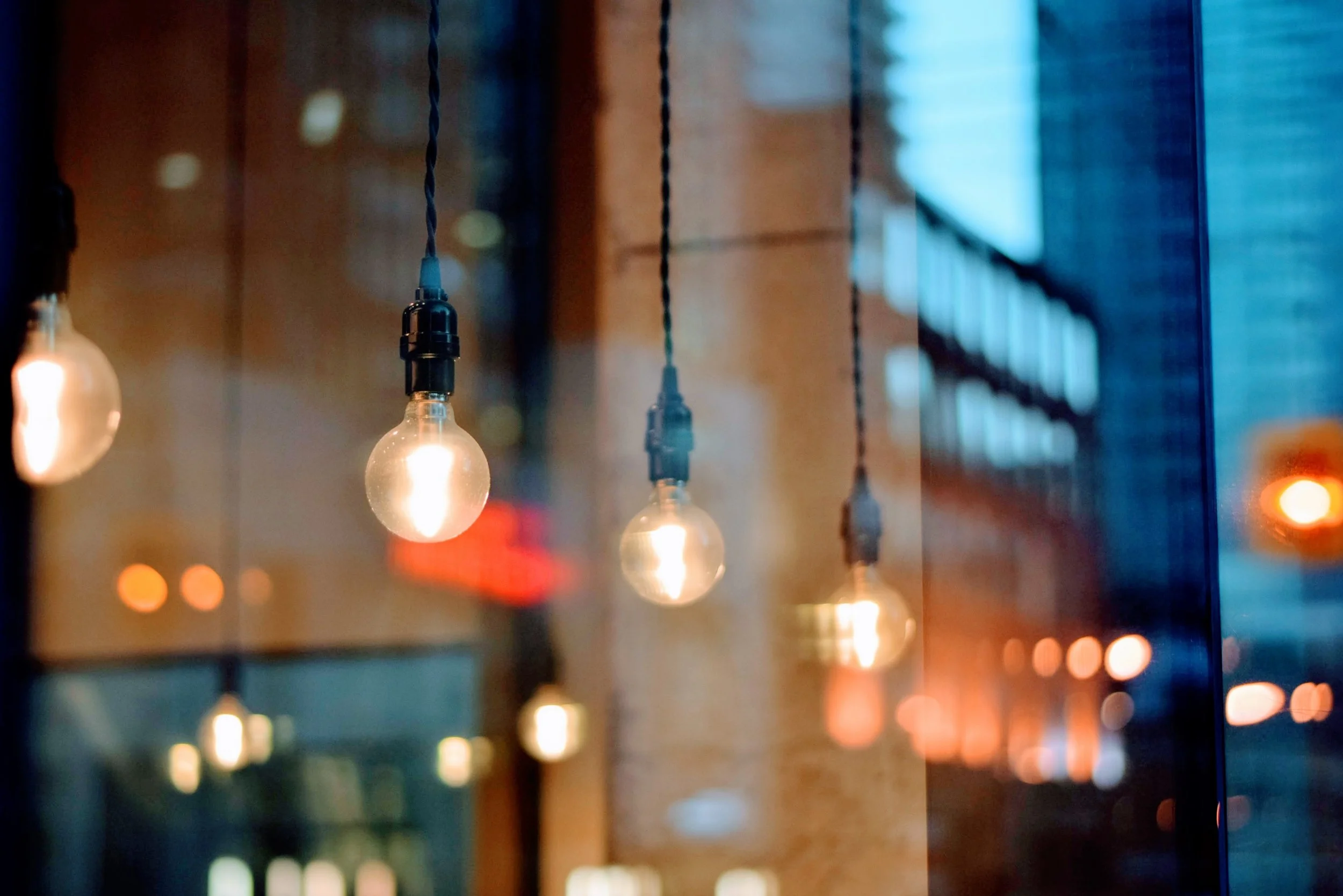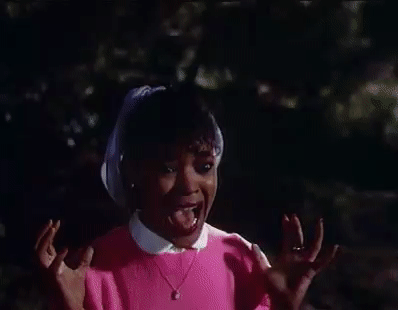We got this: Finding hope in the time of COVID-19
/COVID-19 has had the entire world hit the panic button. Well, clearly not the little brats who refused to cancel their Spring Break parties in Miami. And not my dad's relative who, I'm told, hosted a large party in Douala last week to celebrate his new job.
I don't know how people are not freaking out. Here’s actual footage of my mind during the past few weeks:
I am scared AF. Deliberate and afraid of nothing? Lorde, that is not me. I’ve lived with pretty severe anxiety for the past few years, and that was before a global pandemic decided to ruin 2020 for everyone.
When in panic mode, I often go back to this quote by Japanese artivist Yoko Ono: “Write down everything you fear in life. Burn it. Pour herbal oil with a sweet scent on the ashes.”
Naming my fears
So, I made a list of everything I’m afraid of, and everyone I’m afraid for, in these surreal times.
I am scared for my asthmatic mother who won't be able to get the healthcare she needs in Cameroon if (when?) shit hits the fan.
I'm terrified that I might have unknowingly passed the virus to the friend I visited in hospital two weeks ago.
I worry about single mothers. Those who are home-schooling their kids while working from home or keeping their home running, with no possibility to get assistance. And those who are wondering who will take care of their children in case they are quarantined.
My anxiety hits peak levels when I think about how the COVID-19 prevention guidelines are nothing but wishful thinking for millions of people, especially in Africa. How do you wash your hands after every sneeze when you have no access to water? What does social distancing even look like for those who earn their wages by the day or live in large households?
Let’s not forget that for countless women, #StayAtHome is not a hashtag, it’s a potential death sentence. Self-isolation means they are trapped in with abusive partners until further notice, and that is terrifying.
I’m worried about the health workers who are on the frontlines of this pandemic: who takes care of them and their families?
I’m scared for all “safe spaces” and girls’ club participants who won’t get sexual health and rights information and services for the foreseeable future.
I can see how this exercise can be stressful for many, but expelling my unending internal monologue onto paper has been oddly soothing for me. Yet as I write these words, I am not sure I should publish them.
“Own your fears” is easier said than done
Not only do I have no interest in spreading even more gloom, but I’m also aware that it is because of my privilege that I am able to process my emotions from the comfort of my home while others are out there fighting for their lives. It’s a feeling Shonda Rhimes captures beautifully in The Year of Yes:
“Am I drunk? Am I kidding me? Did I just think that? Honestly I’m a little indignant with myself. I’m embarrassed to even be having that thought. I’m ashamed, if you really wanna know. I’m bathed in shame. (…) You know who gets to be miserable? Malala. Because someone shot her in the face. You know who else? The Chibok schoolgirls. Because the terrorist group Boko Haram kidnapped them for school for forced marriage (…) and no one cares anymore. You know who else? Anne Frank. Because she and about six million other Jewish people were murdered by Nazis. And? Mother Teresa. Because everyone else was too lazy to treat the lepers and so she had to do it. It’s pretty shameful of me to sit around saying miserable when there are no bullets in my face and no one’s kidnapped me or killed me or left me alone to treat all the lepers.”
Replace “miserable” by “afraid” and that is exactly my inner voice right now. Add to it the hopelessness that comes from confinement, as I’m fully aware that the online tools at my disposal are out of reach for the people who will bear the brunt of the pandemic.
Fear, guilt and helplessness. Sounds like an activist’s nightmare to me.
Feminists are showing us how it’s done
I don’t know about you, but I typically react to fear by being quiet and immobile. (If you’re wondering why Eyala’s social media go silent for weeks at a time, now you know.) But somehow, I’ve found the energy to keep moving. Obviously, being in military-enforced lockdown with two kids who need to be home-schooled and reassured doesn’t leave much room for freezing. Plus, there is some comfort in remembering that this is everyone’s first global pandemic, and everyone must be equally terrified.
But also, I have seen enough glimpses of the world’s beauty to keep me going. I don’t mean the free concerts on Instagram, though it was nice to get a sneak peek into John Legend’s living room. My bouts of hope come from observing and conversing with feminist sisters from across the globe. Let me give you a few examples.
Nigerien feminist Fati N’zi-Hassane (from Niger, not Nigeria) is inviting Africans to record #SafeHandsChallenge videos in their local languages and share them on Whatsapp family groups. The goal is to reach family members who don’t speak the WHO’s official languages. Join the challenge if you can!
Chantal Naré, a feminist and communications specialist from Burkina Faso, has been blessing our Facebook timelines with simple infographics she created to debunk myths about COVID19, always using WHO-verified information. (No, eating garlic does not prevent Coronavirus infections.)
African Union Youth Envoy and badass feminist Aya Chebbi is organizing Africa’s COVID19 Youth Response with young activists from across the continent. She too is focusing on #FactsNotFear, and she’s making sure we know how to reach our respective countries’ Conoravirus hotlines. A queen!
Olutimehin Adegbeye, a brilliant feminist writer from Nigeria, is hosting hilarious but informational “Girl Grab a Glass” Instagram live chats. Last week we discussed what “building community and practicing solidarity looks like in these unsettled times”. I drank Orangina, but in an elegant wine glass. Don’t judge my life. I can’t wait for the next one.
Zimbabwean feminist Everjoice Win is asking all the tough questions about Africa’s response to the pandemic. I’ve learned a lot about online advocacy from just following her on Twitter.
In France, Afro-feminist poet Kiyemis started an online petition to demand that the government provide basic protective equipment (gloves and masks) for cashiers who are putting their lives at risk just so people can stock up on pasta and toilet paper. Sign the petition here.
Collectif PsyNoires, A small group of Black women therapists in France are making themselves available for free sessions with vulnerable women of color whose traumas are being triggered by COVID19-related anxiety. More information here (in French).
African feminists are once again inspiring me to feel my fears and do my part anyway, so I will.
I will keep checking in on my feminist sisters, and starting all my conversations with some version of “Hi, how are you coping in these scary times?” I will keep offering Eyala as a space that amplifies the voices of African feminists. I will host digital versions of Eyala’s Sisters Circles, the intimate, safe and brave spaces I’ve been creating for African women to share, learn and support one another.
The world has changed in unimaginable ways, but feminists haven’t. We got this.





